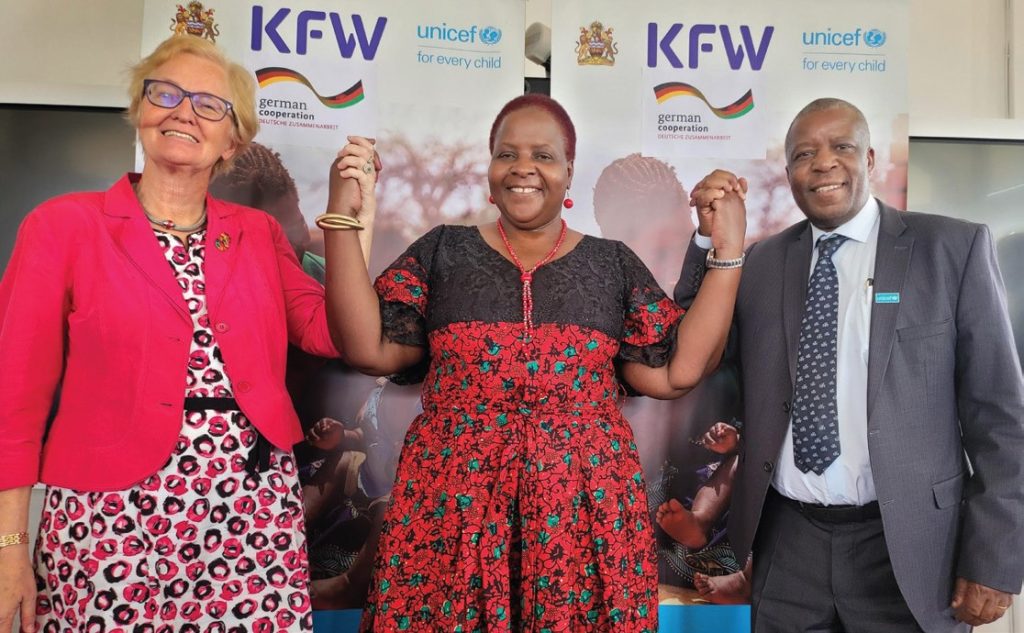Germany grants Malawi K6.3bn for nutrition
The German Government has provided 5 million euros (about K6.3 billion) to Malawi to scale up interventions to address malnutrition in Phalombe, Nsanje, Blantyre, Dowa and Lilongwe districts.
This is additional funding towards the Scaling Up Nutrition (SUN) programme, which Malawi has been implementing since 2011, bringing the overall German Government’s contribution to 44.55 million euros (about K57.46 billion) since 2016.

The German Government, through KfW, is collaborating with the Ministry of Health to implement high-impact nutrition interventions to reduce under nutrition in the five districts up to December 2024.
In a statement, Minister of Health Khumbize Kandodo-Chiponda said the support comes at a time Malawi is dealing with a challenging food security situation.
At least 4.4 million people are expected to face high levels of acute food insecurity between October 2023 and March 2024.
Said Chiponda: “This additional assistance will enable us to step up efforts to improve livelihoods and build resilience among the communities and households to promote optimal nutrition among our children, adolescents, women, and other vulnerable groups.”
On her part, German Ambassador Ute König said the grant will also protect hard-won nutrition gains Malawi has achieved under the SUN programme that addresses the needs of the most vulnerable people, especially children.
Under the programme, the Ministry of Health, with technical support from Unicef, implements 13 high-impact nutrition-specific and nutrition-sensitive interventions through the SUN Nutrition Education Communication Strategy-II (SUN-NECS-II).
Some of the activities include promotion of optimal breastfeeding and complementary feeding for infants, and strengthening of the nutrition policy, environment and governance structures
Meanwhile, Unicef representative Shadrack Omol has commended the German Government for the timely support, saying it will help sustain progress in protecting children from malnutrition and enhancing Malawi’s human capital.
“Evidence shows that proper nutrition during the first 1 000 days between a woman’s pregnancy and her child’s second birthday gives children a healthy start in life,” said Omol.





